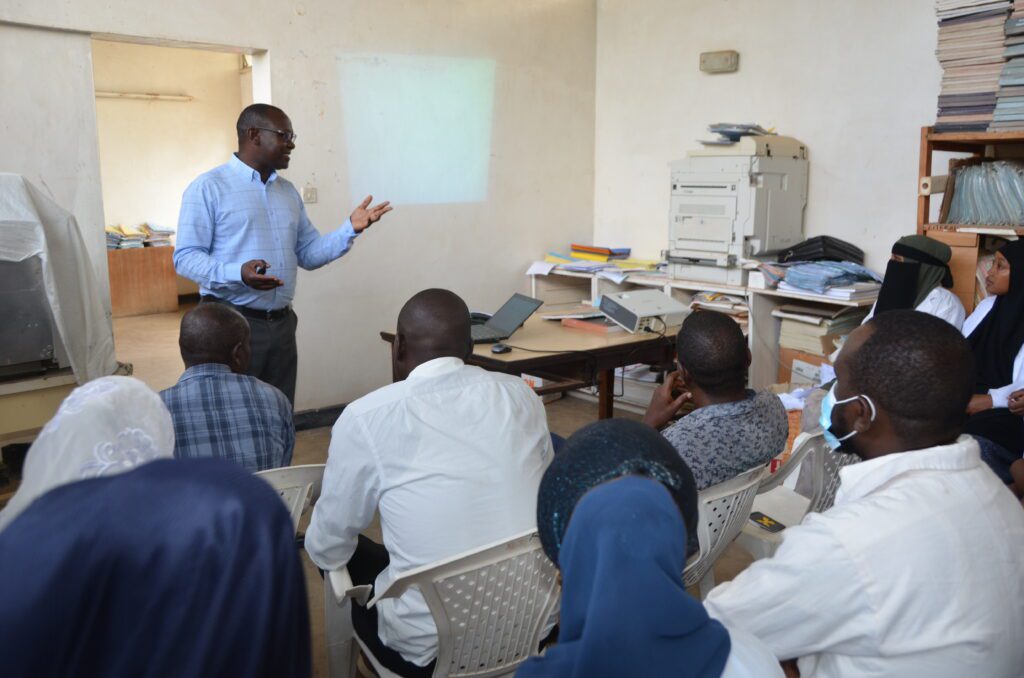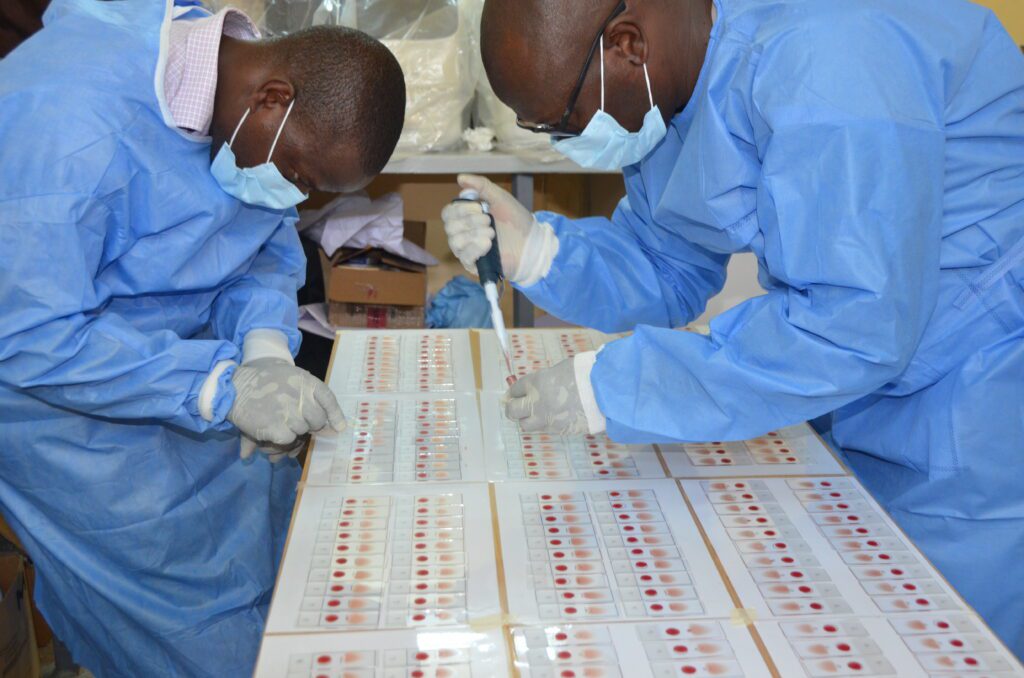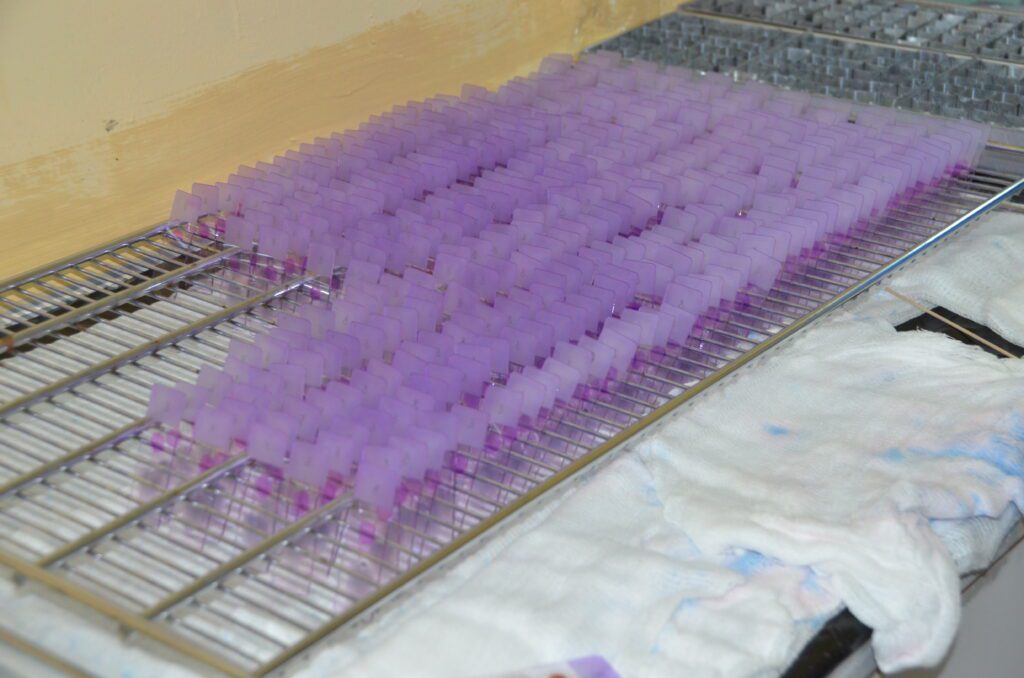Malaria remains a major public health problem in tropical regions of the world. Despite being preventable and treatable, malaria has a devastating impact on people’s health and livelihoods globally. According to the World Health Organization (WHO) Malaria Report 2023, 249 million cases and 608,000 malaria deaths were reported in 85 malaria-endemic countries in 2022. The African region carried the greatest burden, with over 94% (234 million) malaria cases and 580,000 deaths. The World Health Organization African Region (AFRO) carried the greatest burden of malaria globally, accounting for about 93% of cases and 95% of deaths. Several factors, such as climate change, extreme weather events, and scarce resources for quality diagnosis and case management, contribute to this severe malaria problem.
But there is hope in achieving a malaria-free world. Early diagnosis followed by prompt and effective treatment are one strategy and are essential to reducing malaria mortality and morbidity. The ‘accepted standard’ and the cornerstone of parasitological confirmation is a microscopic examination of blood films. Yet the quality of microscopy services in clinical settings is frequently inadequate to ensure optimal care. False positive and false negative test results lead to misdiagnosis, irrational use of anti-malarial drugs and waste of resources, and lower the confidence of clinicians in using laboratory results for patient management. With emerging resistance to artemisinin, accurate diagnostic services are becoming vital.
African countries’ national malaria programmes through their governments and with support from donors and partners, including Amref Health Africa, are working to strengthen malaria
diagnosis, case management and vector control. Some countries have achieved elimination, and others are in the pre-elimination phase. National malaria diagnostic quality assurance programmes have become a priority to support these efforts and include malaria microscopy refresher training, competence assessment of malaria microscopists and proficiency testing. Amref’s Regional Laboratory Programme has implemented quality assurance programmes across 30 countries, including conducting malaria diagnostic refresher training and External Competence Assessment of Malaria Microscopists (ECAMM) courses. Amref is the World Health Organization-appointed ECAMM coordinating agency for the Africa region (AFRO) and also delivers courses in countries in the Eastern Mediterranean (EMRO) region. All these activities require access to well-characterised blood slides of the different Plasmodium parasite species.
“Laboratories are the backbone of scientific excellence, driving innovation and tackling pressing health challenges. They play a pivotal role in primary health care, which is a pathway to Universal Health Coverage,” says Mary Muthoni, Principal Secretary of the State Department for Public Health and Professional Standards in Kenya.

Amref’s malaria slide bank provides standardised, high-quality blood films of the four major human Plasmodium parasite species. So far, countries in Africa, through their national malaria programmes, have utilised these slides, including Burkina Faso, Cameroon, Côte d’Ivoire, the Democratic Republic of the Congo, Ghana, Kenya, Madagascar, Malawi, Mali, Mozambique, Nigeria, South Africa, Tanzania, Uganda and Zanzibar. Slides have also been provided to programmes in France, Iran and Oman.
Supporting Malaria Microscopy in Marsabit County
In March 2024, the Amref Regional Laboratory Programme organised a 3-week visit to Moyale in Marsabit County to collect slides for Plasmodium vivax, which is rare outside northern Kenya. With support from the county health authorities and the Chief Executive Officer of Moyale sub-County Referral Hospital, the Amref team collected over 17,000 slides from 25
donors. Moyale sub-County has 38 health facilities, of which only four provide malaria microscopy services while the rest use HRP-2-based rapid diagnostic tests which detect P.falciparum only. Therefore, there are high chances of missing cases of P. vivax and the possibility of continued suffering of patients who do not receive appropriate treatment.
While in Moyale, the Amref team conducted on-the-job training for the laboratory technical team in the sub-County Referral Hospital to strengthen their malaria diagnostic skills. The team also conducted a continuing medical education session on the role of diagnosis in malaria case management at the hospital’s weekly educational meeting.
Amref urges governments, public health institutions and laboratories to invest in improved malaria diagnosis through ensuring essential equipment and supplies for malaria microscopy services, and promoting refresher training and quality assurance activities. Amref’s malaria slide bank is one component of the fight to improve malaria diagnosis and management across the region.
Let’s act now for a malaria-free future for our communities!
Contact David Isaboke for more details.


Author: David Isaboke – Programme Officer, Training Amref Regional Laboratory Programme
